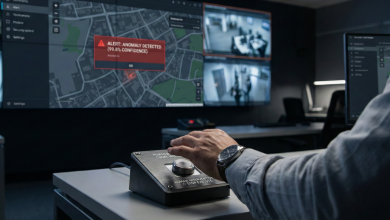
Every day, more organisations are investing in AI, chasing significant productivity gains. But while there is strong ambition among much of the workforce to make the most of this rapidly improving technology, many companies have a critical stumbling block hindering meaningful progress: leadership.
This conundrum is especially evident in the STEM sector, where complex technology is often already critical to everyday work, and AI is triggering change far faster than many organisational structures can support it. While there is a growing sense of urgency around digital transformation, key decision makers in many organisations are still hesitant to invest in the tools that would make it real – in spite of strong desire for technological upgrades among their workforce. That disconnect doesn’t just impact productivity but also undermines confidence, morale and retention.
Indeed, our research, How the STEM World Works, reveals that nearly two-thirds of STEM professionals want to work for companies that actively embrace digital tools as they believe AI will drive business growth. These findings make it clear that professionals aren’t just open to innovation – they expect it. Yet despite this appetite for progress, many feel their organisations are falling short. Just 11% of employees who request digital tools see their proposals approved. And, among those whose requests are rejected, 63% attribute the decision to a lack of digital understanding at the leadership level.
This lack of digital knowledge and confidence is costing organisations far more than just momentum: it’s having a direct impact on productivity. STEM professionals report losing nearly six hours each week due to inefficient or absent AI tools, contributing to an estimated £64 billion in lost productivity for the UK economy each year. It’s an eye-watering figure, but the real impact is felt within teams, where delays and inefficiencies can erode trust and disrupt progress.
Trust is the foundation of any meaningful transformation, and nowhere is this more critical than in the adoption of AI. When teams have confidence in their leaders – when they see competence, curiosity and a willingness to engage with emerging technologies – they are far more likely to embrace change. But when leadership appears distant, hesitant or unclear around AI implementation, motivation quickly fades. Our research shows that over 75% of professionals who trust their leaders feel inspired to go above and beyond in their roles, compared with just 2% among those who don’t. Without that trust, what could have been a springboard for AI-driven innovation risks becoming a source of tension and disengagement.
This dynamic is especially pronounced among early-career professionals. Having grown up with technology as a constant, many of today’s youngest workers are fluent in change and more comfortable navigating uncertainty. But that familiarity also comes with higher expectations. They want to work for organisations that are not only talking about transformation but actively living it and they look to leadership for clear signals that innovation is prioritised and that there’s room to grow alongside it.
Responding to this shift doesn’t require every executive to become a technical expert. But it does demand digital fluency – a baseline understanding of how AI fits into the wider business landscape, and a readiness to engage with new ideas even when they fall outside traditional comfort zones. Crucially, it requires a cultural shift: leaders who are willing to learn that expertise isn’t all about experience. It can also be about willingness to adapt, be curious, and explore unknown territory.
This isn’t about optics. It’s about creating organisations where learning is constant and distributed – not reserved for the few or limited to a formal training session. In a world where the pace of change is only accelerating, adaptability needs to become part of how leadership functions. Those who wait until they’re “ready” risk missing the moment entirely.
More broadly, the organisations that will thrive in the AI era are those that treat transformation not as a project, but as a mindset. They understand that technology doesn’t replace people — it amplifies them. But only when the systems around them are designed to enable it. That means rethinking how teams are supported, how leaders are developed, and how decisions around technology are made and communicated.
AI may be reshaping roles, but it’s leadership that will determine whether that shift unlocks opportunity or creates tension. It’s not about having all the answers, but being open to new ones. The future of work doesn’t just depend on what tools we use – it depends on how we lead the people using them.




